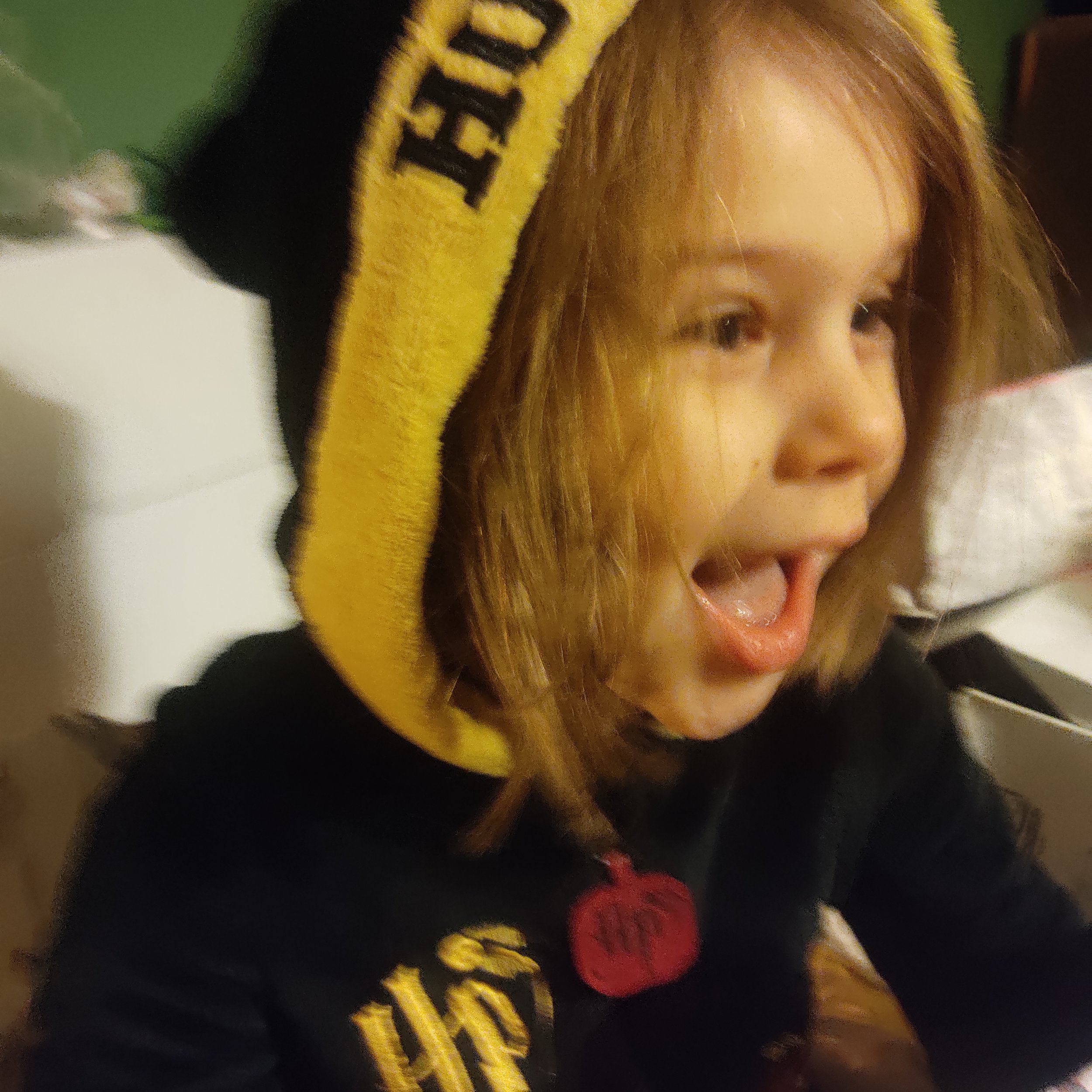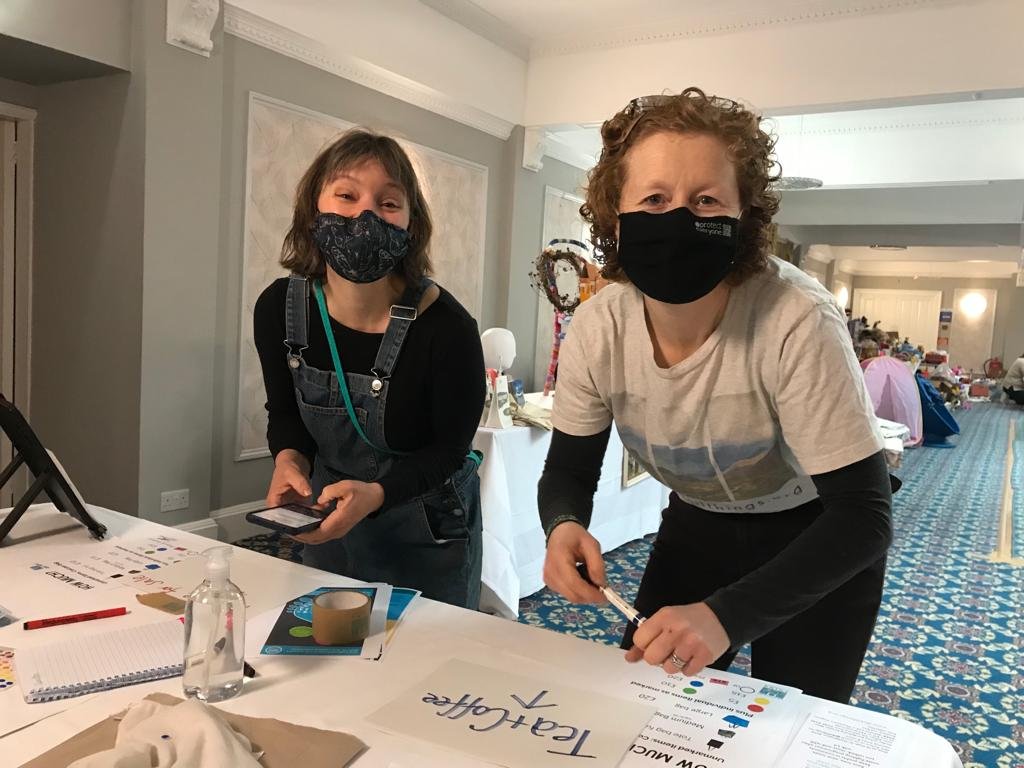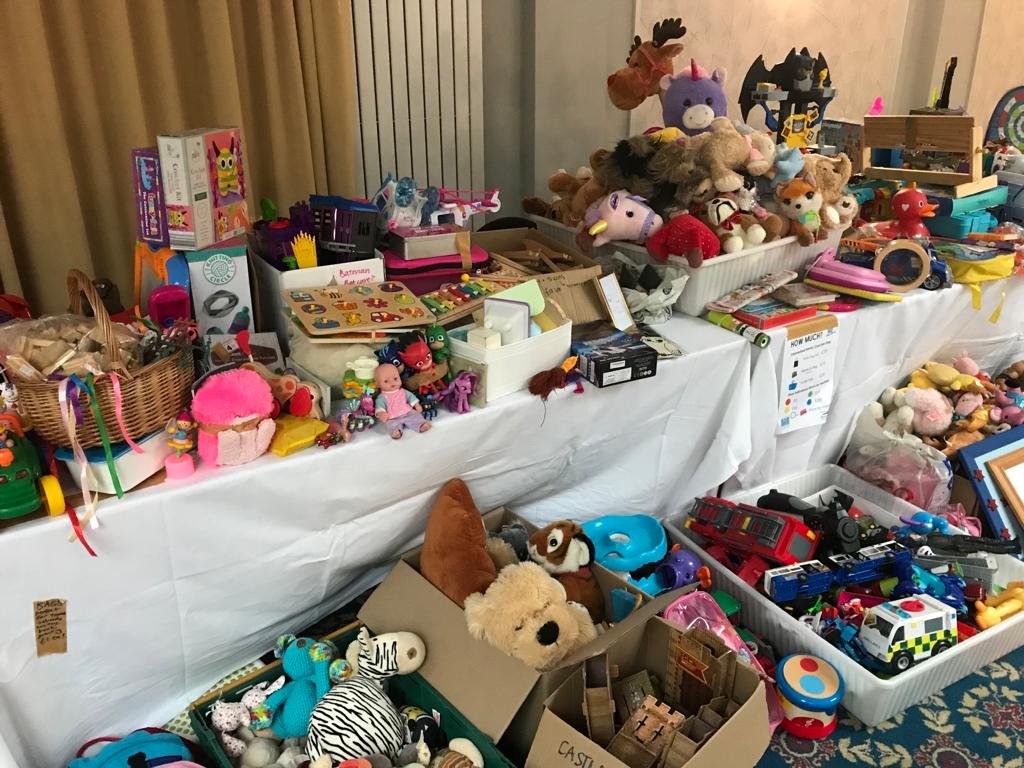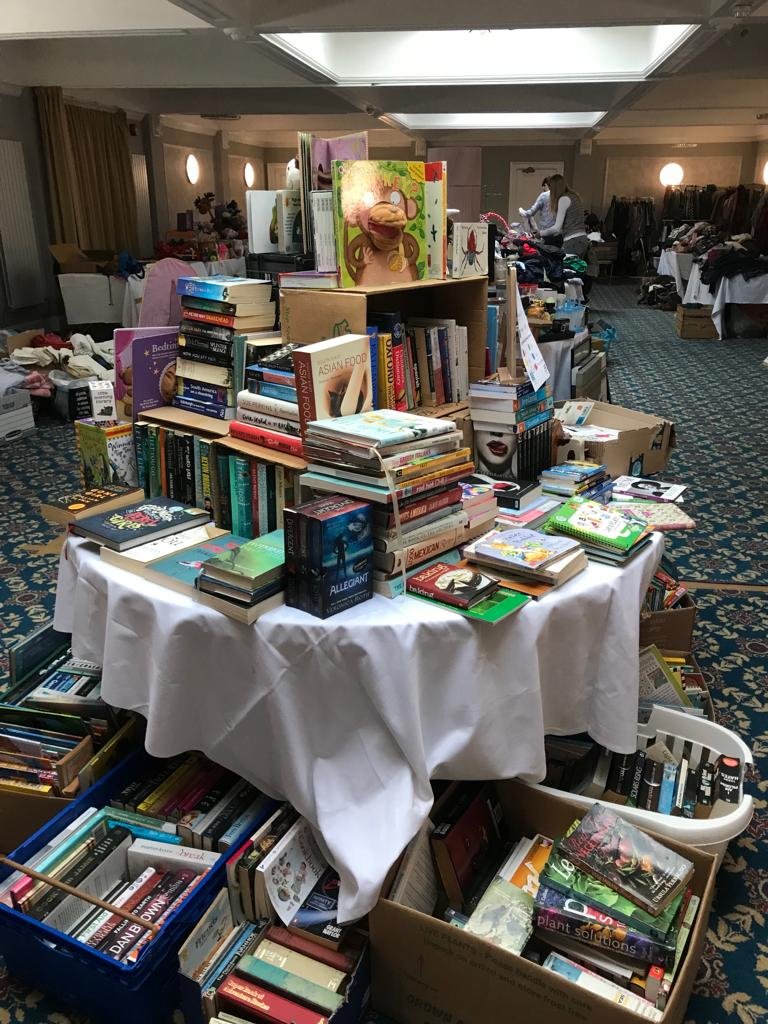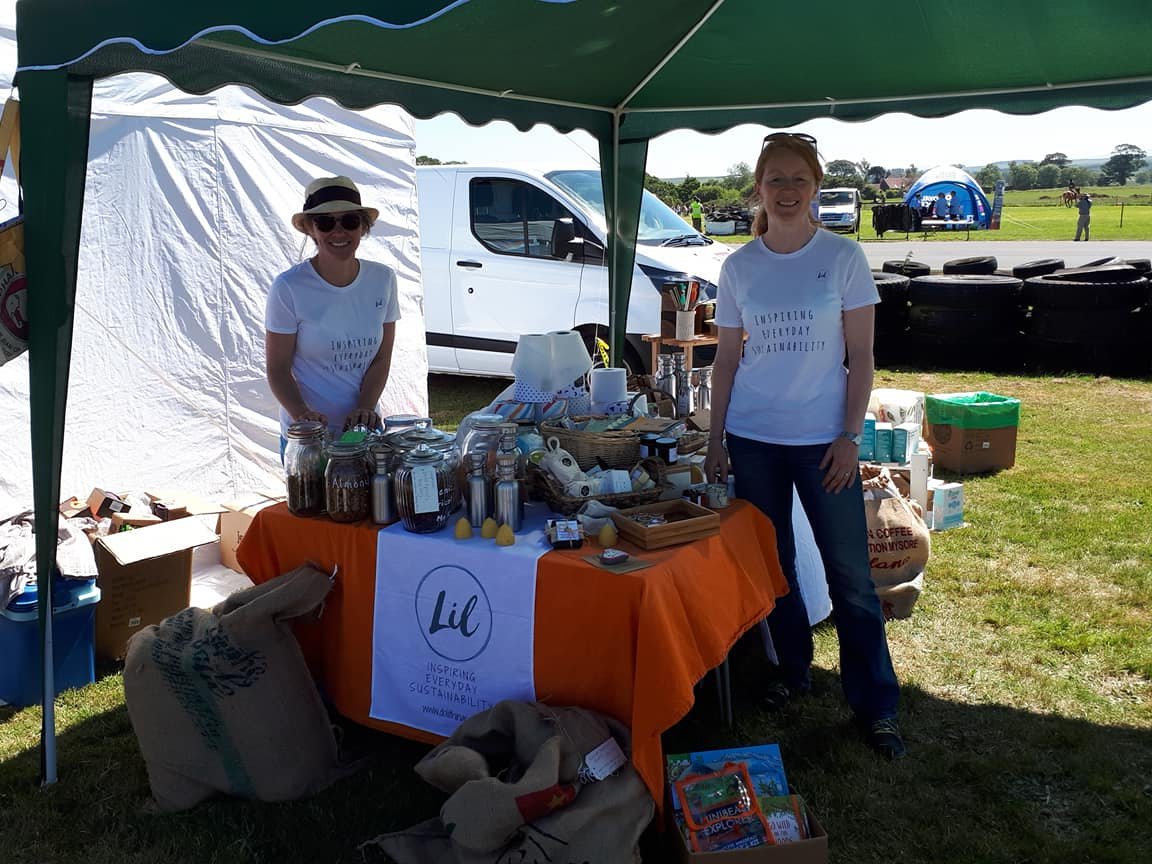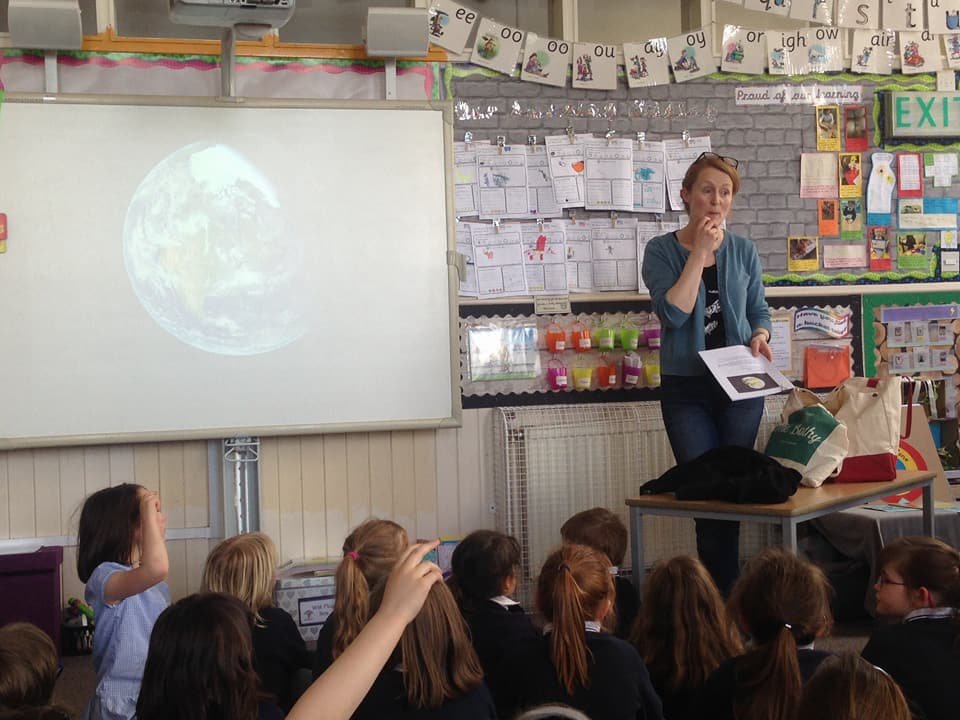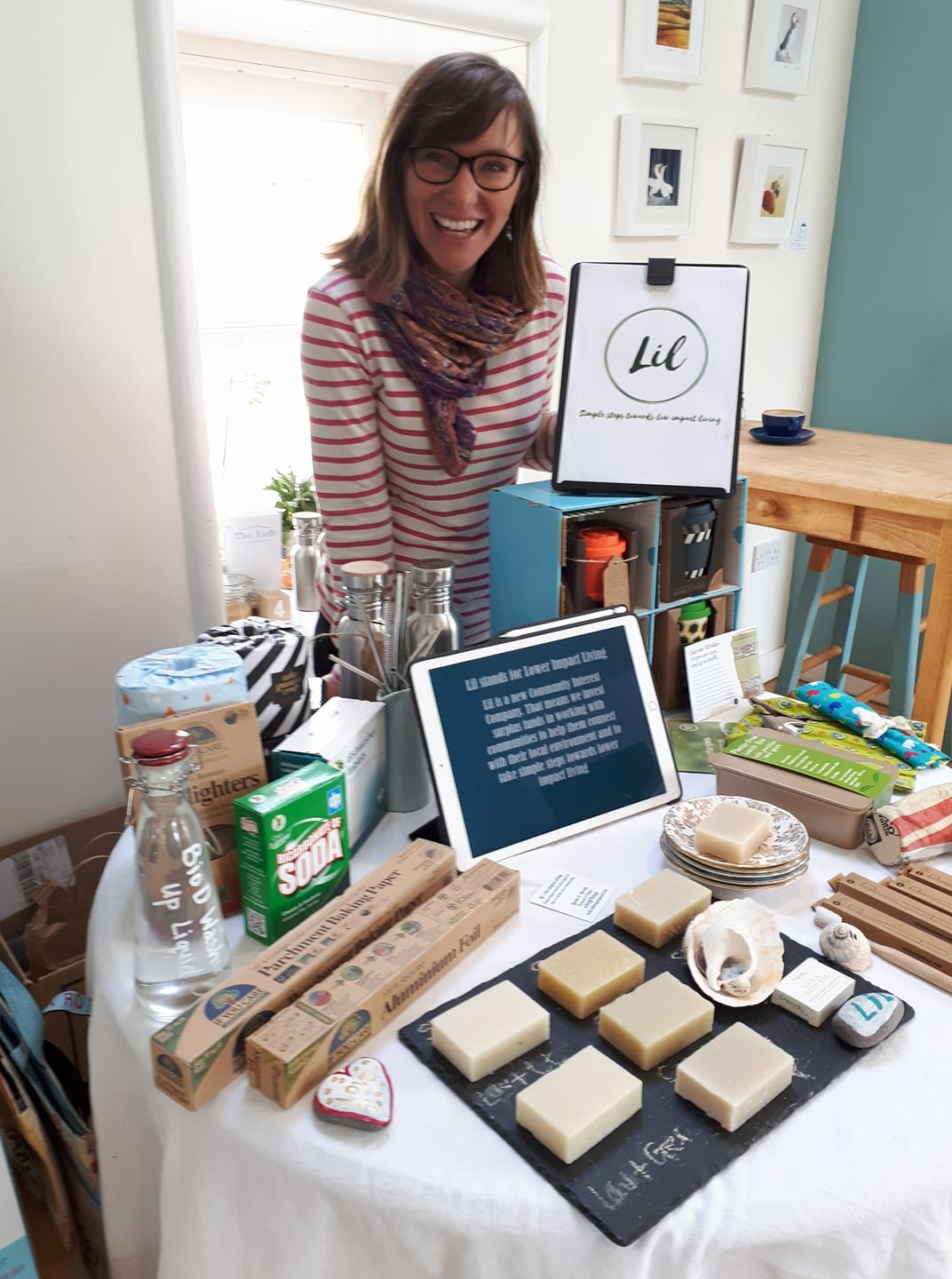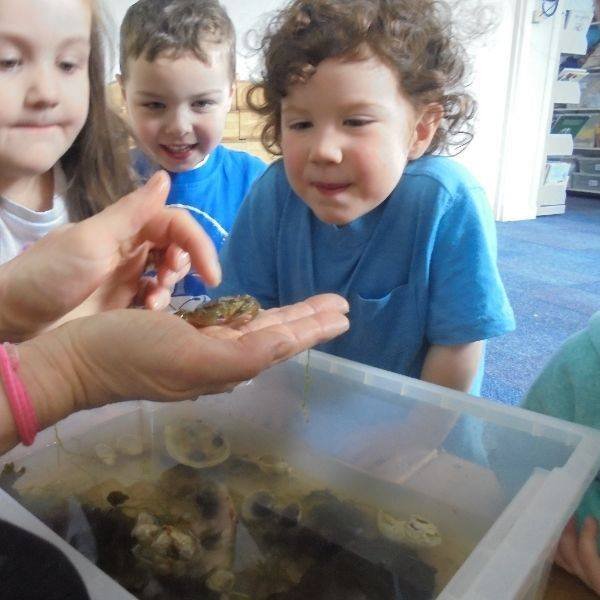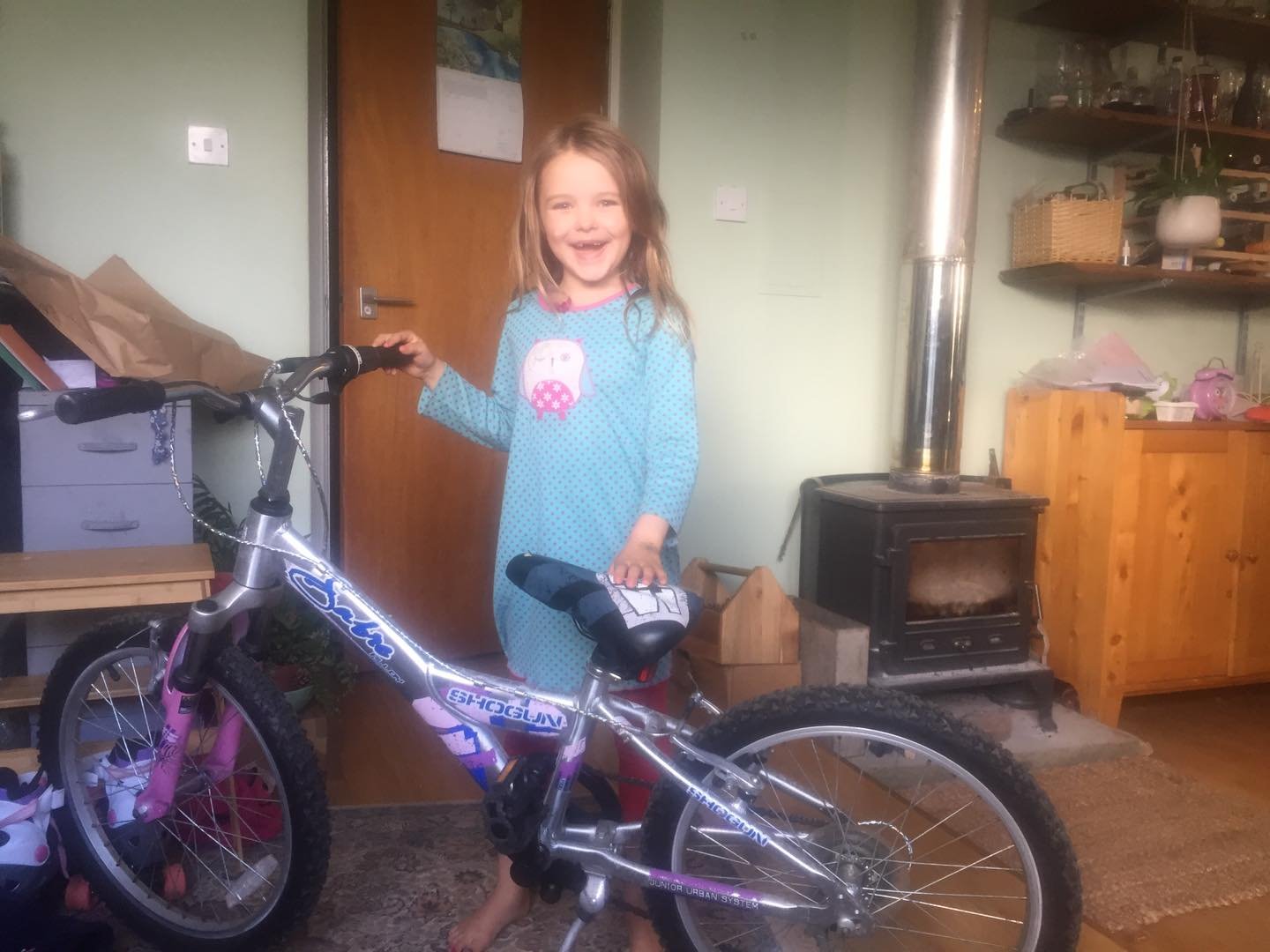Lil in the news! 2nd Hand Christmas
The Big Issue was keen to hear more about Lil’s ReUse Fest in November, how as a community we’re beating Black Friday by going circular, and whether the kids are truly happy with their second hand gifts.
Sarah from the Big Issue sent us an email asking her interview questions. It covered so much ground we thought it was worth sharing with you guys too.
Plus it was a great excuse to wander down memory lane. See some of the photos below of the early days of Lil! And see the professional version of a less consumeristic/ second hand Christmas with the Big Issue here . Scroll on for Lou’s answers to the BI below…
What was it that made you decide to pursue a less consumeristic Christmas, and how long have you been doing this? (i.e. was there a single event or moment that made you reconsider?)
It started when my mum was ill with a double pneumonia. She had to be on oxygen 24/7 and the nurses would make her hang up the phone if she laughed. Most phone calls ended that way, with me reassuring her that “oxygen is good!”.
Oxygen is good.
At the same time I was working on a project about marine conservation. Until then, I thought oxygen came from the trees, from green plants. Nope. The sea, especially plankton, gives us between half to four-fifths of our oxygen. Yet we put a lorry load of plastic into the sea every single minute. By 2050, it’s estimated we’ll have more plastic than fish in the sea. That’s pretty shocking, but we don’t even know the damage that’ll have on our plankton. Our oxygen. Oxygen is good.
Every time I reached for a plastic wrapped anything in the supermarket, I could hear echoes of my chats with mum. “Oxygen is good”. It really kick-started my no-plastic/ zero waste efforts, and after we felt others in the community wakening with Blue Planet II, it led to my friend Sarah and I setting up a social enterprise that sells zero-waste products to reduce waste in itself, but also to fund waste-reducing behaviour change programmes. >sound familiar guys?< It’s called Lil – an acronym for Lower Impact Living, and we liked the idea that it’s all about doing the easy things we can do, #dolilthings, www.dolilthings.org
Prior to this, did you ever do Christmases which involved first-hand presents / lots of present-buying?
Yes. Lots. And I’ve felt the pressure to keep up with others, both financially and socially. I hated receiving gifts and not having one to give back! I’m getting better at saying just “thank you, you shouldn’t have” although this is still a journey, I’m by no means perfect or down to a mason’s jar of waste! I do keep a spare gift or three in the present cupboard.
We started buying less some years ago as kids arrived and the family grew. Financially it was draining, and I knew I was receiving some expensive gifts that I didn’t value as much as the price tag said I ought to. We started a Secret Santa among the adults, with a significant but capped budget. It also went out with the message that it was OK to ask the administrator for something you really wanted, since you only got once shot at it! Somehow it’s easier to ask for something you want when you’re not asking the person who’s giving it? We’re all getting better at asking, which I love because in the UK there are 60 million unwanted Christmas gifts given every year (this linked image really stayed with me) and in Scotland 80% of our carbon comes from goods and services we buy. It’s an insane loop that has to stop.
One year we gave scarves, and received a full Nintendo playset. The next year we upped our ante. But so did they. It’s easy to see how these things can spiral.
Now, we don’t even buy for our local nieces and nephews. We give vouchers to see each other – it might be a theatre show, or we’re hopeful for a 2022 weekend away.
Why do you feel it’s important to buy less (at least first-hand) at Christmas?
Sorry I started on this above!
We know there’s a climate crisis but we often forget how much control we can exert over what big business does. It is a big business only because it has public support, they have to do what’s best by shareholders. There is definitely room for government to control factors to make it easier for everyone – but we can’t really afford to wait only for governments. They’re slow. We’re fast. And we find hope in doing the Lil things. There is absolute hope in action and hope is a wonderful gift.
Do you feel that your Christmas experience is diminished in any way by avoiding first-hand buying?
No!
At Lil we say that second-hand is our first choice.
There’s an added challenge, which makes it such a thrill when you find that perfect thing. I hate it when I “have” to buy new.
The girls are getting islabikes, rollerblades, books, clothes. My younger daughter just had her birthday and got £20 voucher from her grandparents to spend at charity shops. She was over the moon. For the same birthday, my elder daughter had said that her younger sister definitely could not have her Harry Potter onesie, “it still fits me” – but secretly hid it away and gave it to her as a gift, along with other hand-me-downs. Both girls were delighted.
Secondhand is far from second-best.
Aside from presents, are there other ways in which you try to be less wasteful at Christmas?
Yes, absolutely.
We don’t buy wrapping paper anymore. It’s hard to recycle, a waste of resources – but also who has time to wrap presents?!! We pop them in pillowcases, use some of those beautiful scarves that live in the back of the cupboard, gift a tea-towel with some ribbon. We have also invested in some gorgeous fabric gift bags.
Teachers and other “thank you” Christmas gifts get vouchers, or seedboms. At least if they get thrown out they’re likely to turn into plants.
We’re careful about the food we buy. If food waste were a country it’d be the world’s third largest carbon emitter. We’re getting less of some items that have short best-by lives, and choose plenty of desserts that have freeze-able leftovers. Who doesn’t love plenty of desserts? (Sorry, puddings! Am Aussie!)
We dress in cosy winter jumpers so we can leave the heating at a sensible level. Lil has a Facebook group for sharing winter jumpers and fancy dress, means you can still have something fab and new – and probably only worn as many times as something has been tried on in a shop.
We definitely avoid plasticky, cheap palm-oil filled chocolate advent calendars! We have a reusable advent with gift cards & small gifts.
How do your family (especially your kids) feel about the way you celebrate Christmas? Do they understand the reasons why you celebrate the way you do?
The kids are more on board than some other family members. I asked them if I could use their photos for this, and they were even more enthusiastic about secondhand than usual. As above, they’re gifting each other second-hand items.
“We love it.”
“Secondhand is better than new, it’s not second best.”
“It’s great for the planet.”
I reminded them they once said our active advent calendar was “full of jobs” when their cousin got chocolate. They laughed. “Did we say that? Ha. No, we love it mummy. It gets us all Christmassy and ready for Christmas. And we get some chocolate too.”
They do miss some things – I refuse to buy fidget spinners or those weird popper things. But then they LOVE a charity shop rummage. There are other ways that their “traditions” will be so different. Traditions are only there because we do them, if they don’t work for us then there’s no sense in keeping them. They’re certainly not going to thank me if the worst effects of climate change come into effect.
My husband was talking about practical jokes with my youngest daughter. (Why give them ideas?!!!) He said some people put cling film over the door so someone walks into it.
She asked what cling film was.
Could you tell me a bit more about your second-hand sale, why you set it up, how it works and what kind of feedback you’ve had about it?
Oh the feedback has been beautiful!
One mum told us that because she’d been able to get all her Christmas presents, it meant her family would have a proper Christmas meal.
Lil is all about reducing our impact, and buying new has a massive impact. From the carbon footprint, to not knowing the ethics of the factory producing, shipping – and working conditions there? - it makes so much more sense to buy quality items that are already “out there”.
The local poverty commission reported a lot about the stigma of poverty, and had a quote that resonated with us:
“I’m embarrassed to have people come to my house because nothing matches.”
NOTHING matches in my house. It’s all secondhand, freecycled, upcycled, antique. I love it. Our friends and I all brag about where each piece came from.
So it’s such a disconnect that it’s those who can financially least afford to buy new, feel the pressure to do so. Based on nothing but stigma or perception.
We wanted to break that stigma. Break that disconnect between hearing reports about poverty on the news of “I had to buy my kids secondhand clothes”. Not getting a choice is rough, don’t get me wrong, but I GET to give my kids secondhand clothes because our community is amazing. We are so rich, our community shares.
We wanted to have an event that brought different demographics together, to show that everyone shops secondhand, and we love it.
“I’ve never seen so many Range Rovers at a jumble sale,” was one comment.
Our local East Lothian Council gave us funding to distribute vouchers via referral partners, and we gave each family £50 to encourage them to attend. Even then many didn’t come – we had reasons reported back that they couldn’t get there, or because of “stigma”. There’s still some work to be done. Everyone then paid with vouchers so we didn’t know who was referred or not.
The quality of items donated was incredible. People were so generous when they knew they were supporting their local community, and also to shop there was supporting local families by smashing stigma. We think we had 20 van loads of donations. We sold three-quarters of it and the leftovers have kept me in new fashions for the following weeks, and got my daughter her favourite birthday present – a farting, talking furry friend dog. It’s hideous, she loves it.
We had so many items donated we couldn’t individually price them all. We had to say anything unpriced was £10 for a tote bag, £15 for a bag for life, £20 for the blue Ikea bags.
We decided too that it was important to have the event before the Black Friday sales and the credit card debt can spiral from those marketing gurus who get paid mega to make us feel guilty for not buying new, more, and more again.
A referral partner has just been in and said that the family she supports loved coming, got some great items but it really helped break down stigma.
“They loved seeing their donated items out for other people to have too, to know they were contributing as well as benefitting.”
If I can leave you with one message from this essay – it’s that Oxygen is good. Let’s do what we can to protect it.

